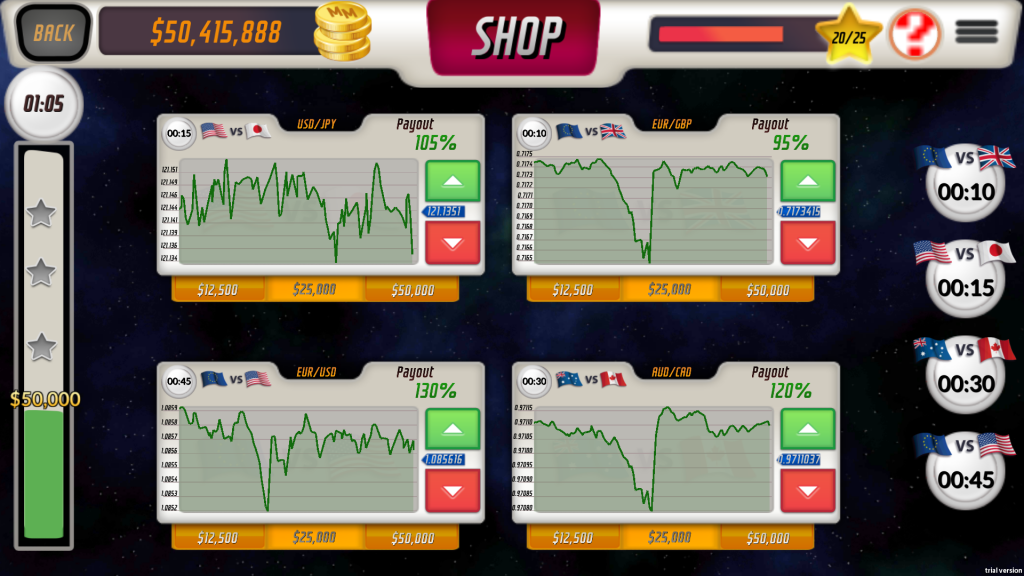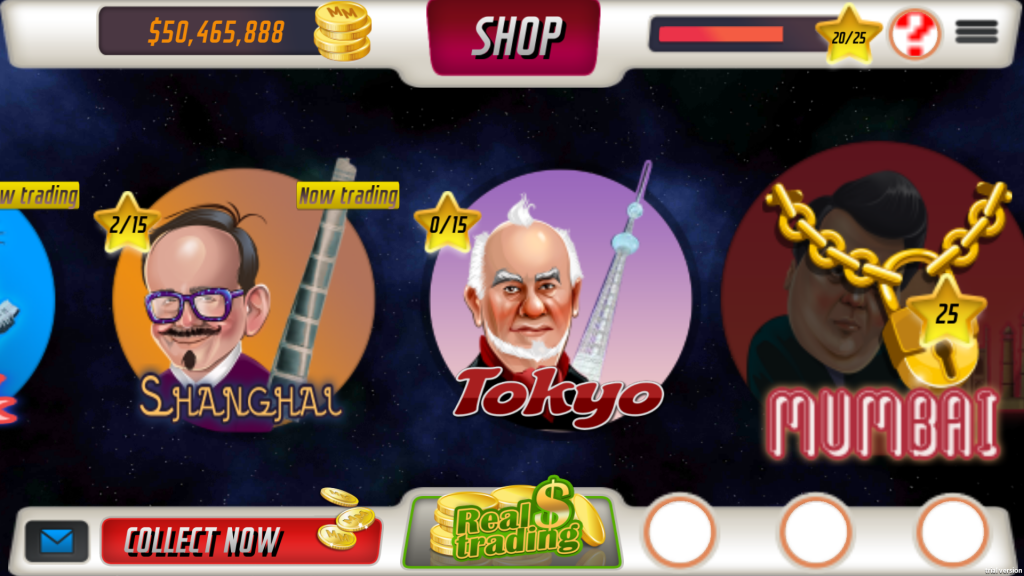Winning the Forex Magnates' London Summit Innovation award, Tradimo Play made a splash with their ‘Trading Hero’ game. The pitch was a video of two gamers playing a real life looking flight simulation game and how gamers have lots in common with traders. As a result, training new users with games provides a vehicle for broker to introduce trading to customers.
Also entering the market with a gamified version of trading is Market Madness. Offered as a mobile app, Market Madness is a binary options styled game using real market prices. Like binary options, gamers pick the direction of the market and win if the price of the chosen asset is above the starting point when they began the game. Slightly different than binary options, Market Madness is based on a combination of very short trading games of 10-15 seconds to keep players entertained and engaged with the game. By doing this, Market Madness is positioning itself as a game first, that just happens to be using the trading market as the underlying game.
Speaking to Tal Dekel, CTO of Market Madness, he explained to Forex Magnates that he viewed the trading market moving in two directions. On the one hand, there are brokers working to enhance their image as higher end financial institutions like banks and appeal to larger traders and high net worth individuals. On the other end of the spectrum, brokers are focusing on user engagement and gamified versions of trading to connect with younger traders.

With Market Madness, Dekel explained that the game is actually a “mobile game that is layered on top of a sophisticated trading environment." Dekel added that behind the scenes there were Analytics and user tracking taking place to better understand which gamers are most engaged in the product and how and when to provide them with free upgrades, educational material, and marketing messages from third parties.
On the front end, Market Madness is similar to many other mobile-based games that use levels of difficulty and require playing to unlock new levels in the form of trading centers which provide additional trading assets like commodities and stocks to trade. As the game is a variation of binary options, the gaming difficulty is based on the payout of successful trading bets. Users will see payouts of around 115% in the beginning, which decline to the 70% to 80% as the game becomes more difficult, eventually becoming similar to what binary options brokers provide.
Currently, Market Madness is operating with two business models; partnering with brokers and licensing. In its standard version which Market Madness markets and operates, the game includes advertisements to third party binary options brokers, of which Market Madness compensates as an affiliate of those firms. In addition, Market Madness offers the game as a branded white label mobile offering that can be licensed by brokers.
Dekel explained that interest from brokers to license the app was as an educational product to their customers or unique content for marketing. He added that interest was from both binary options and forex brokers, who were using the app and the tutorials within it to engage users and track their performance. In terms of whether Market Madness could train and onboard clients and become a replacement of human sales people, Dekel answered that he viewed the app as a tool for broker sales and support to use in addition to their work. He envisioned that a sales person could market the game to their leads and track their performance and follow up with highly engaged users.

Overall, Dekel explained that whether we like it or not, games were quickly becoming part of the education process for a vast number of things in our lifetime. Simultaneously, mobile game usage levels are rising across all demographics, with casual betting games becoming a multi-billion dollar business. The result is that these trends fit in well with the integration of gamified trading products to become popular among online forex and binary options broker users.












